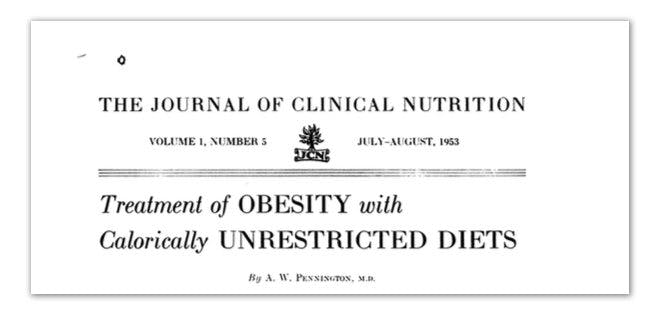A low-carb, high-fat diet from 1953

Here’s a nice read: How to treat obesity with calorically unrestricted diets. It’s written by the medical doctor, A.W. Pennington, who inspired Dr Robert Atkins to lose weight in a similar way. This paper is dated 1953, ten years before Atkins tested it and two decades before his book “Dr Atkins’ Diet Revolution” was published.
Dr Pennington’s plan is a moderate low-carb diet that still allows for a little bit of potatoes or fruit. Sixty years later it should still work fine for most people. There’s no need to voluntarily restrict calories and starve.
If this is a fad diet it’s weird that it keeps outperforming its competitors, decade after decade.
I have one major objection, I would not recommend restricting salt when on a low-carb diet. It has no benefits and increases the risk of side effects like dizziness and fatigue.